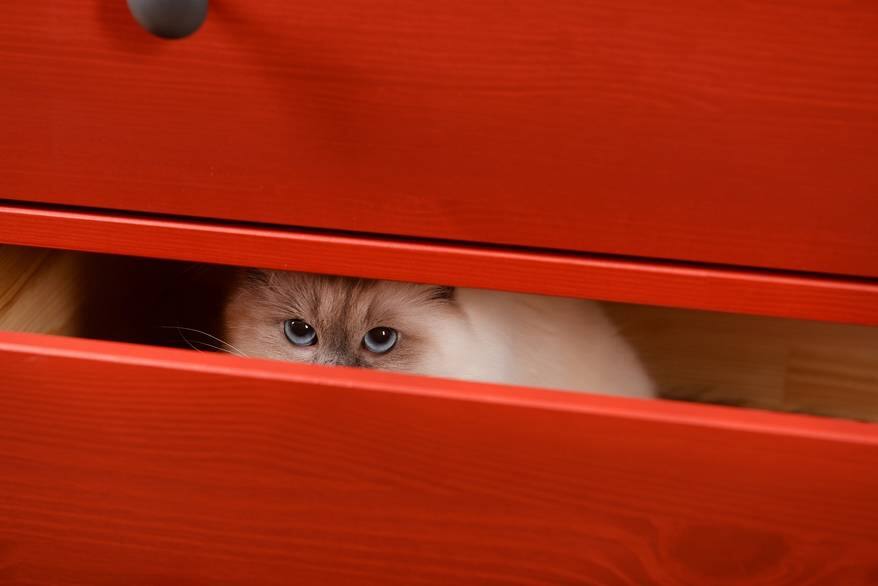
-
Find the right food for your pet
Take this quiz to see which food may be the best for your furry friend.
Find the right food for your pet
Take this quiz to see which food may be the best for your furry friend.
Featured products
 Adult Perfect Weight & Joint Support Chicken Recipe Dry Dog Food
Adult Perfect Weight & Joint Support Chicken Recipe Dry Dog FoodThis weight management and mobility support dog food was created with Hill’s unique understanding of the biology of overweight dogs.
Shop Now Adult 7+ Perfect Digestion Chicken, Whole Oats & Brown Rice Recipe Dog Food
Adult 7+ Perfect Digestion Chicken, Whole Oats & Brown Rice Recipe Dog FoodScience Diet's breakthrough nutrition supports ultimate digestive well-being & healthy microbiome for dogs age 7+
Shop Now Adult 7+ No Corn, Wheat, Soy Chicken & Brown Rice Dog Food
Adult 7+ No Corn, Wheat, Soy Chicken & Brown Rice Dog FoodSupports energy level and beautiful coat in mature dogs
Shop NowFeatured products
 Adult Savory Chicken Entrée Cat Food
Adult Savory Chicken Entrée Cat FoodPrecisely balanced nutrition with the delicious taste of savory minced chicken to help fuel the energy needs of cats during the prime of their life
Shop Now Perfect Weight Salmon & Vegetable Canned Cat Food
Perfect Weight Salmon & Vegetable Canned Cat FoodOver 70% of cats lost weight within 10 weeks when fed this nutrition
Shop Now Adult Perfect Digestion Chicken, Barley & Whole Oats Recipe Cat Food
Adult Perfect Digestion Chicken, Barley & Whole Oats Recipe Cat FoodScience Diet's breakthrough nutrition supports ultimate digestive well-being & healthy microbiome
Shop Now -
Dog
- Dog Tips & Articles
-
Health Category
- Weight
- Food & Environmental Sensitivities
- Urinary
- Digestive
- Joint
- Kidney
-
Life Stage
- Puppy Nutrition
- Adult Nutrition
- Senior Nutrition
Cat
- Cat Tips & Articles
-
Health Category
- Weight
- Skin & Food Sensitivities
- Urinary
- Digestive
- Kidney
-
Life Stage
- Kitten Nutrition
- Adult Nutrition
Featured articles
 Pet Food Storage Tips
Pet Food Storage TipsDiscover how and where to store your dry, as well as canned, dog and cat food. Learn how to find the "best before" dates on all Hill's pet food packaging.
Read More The Incredible Science Behind Your Pet's Microbiome
The Incredible Science Behind Your Pet's MicrobiomeLearn what a pet's microbiome is, how it contributes to your pet's gut & overall health, and why nutrition is important in maintaining healthy microbiomes.
Read More Water
WaterDiscover why water is the most important nutrient for your dog or cat to live a healthy life. Find out how much water your pet should consume each day.
Read More -
Find the right food for your pet
Find the right food for your pet


If you've ever thought to yourself, "My dog doesn't like me," or "Why do I have such a standoffish cat?" rest assured that you aren't the only pet parent who has these concerns. From time to time, dogs and cats may appear distant, but that doesn't mean you can't bond with your furry friend and certainly doesn't mean your pet hates you.
My Dog Doesn't Like Me – What Should I Do?
When it's time to welcome a dog into your home, you may imagine cuddling, fun training games and lots of playtime. Unfortunately, that's not always the case. There can be an adjustment period for both dogs and humans, so remind yourself that sometimes when you may think "My dog doesn't like me," he's really just taking time to get to know you. It takes patience to earn trust, so keep playing the role of the pack leader, and your dog should warm up to you.
If you've had your dog for a while, it can be alarming to suddenly wonder, "Maybe my dog doesn't like me anymore," especially if you've always had a close bond. This may be a reason to be concerned. Changes in behavior may indicate a health problem, so it's important to bring your dog to the veterinarian. Health isn't the only reason a dog's behavior changes. A dog who suddenly becomes disinterested in his pack may be experiencing a wide range of emotions, such as jealousy, anxiety or depression. Has anything changed in your home environment recently? Maybe someone moved into your home (or out of it). Maybe you've been taking him for walks less often than usual. Any changes in routine, even small ones, may be reason for your dog to act disinterested in you.
It's also important to make sure that you're respecting your dog's personality and not just assuming, "I guess my dog doesn't like me," when really his personality is different than your expectations. Here's a pertinent example from Vetstreet: "Some dogs love to snuggle and be held, while others only tolerate touch. If your dog doesn't enjoy petting, but you keep trying to touch him, it's very likely your dog will avoid you."
Finally, age may play a role in your dog appearing distant. A formerly playful pup now suffering with arthritis may lounge in bed instead of getting up to chase a ball. His change in behavior doesn't mean he no longer loves spending time with you, he's just adjusting to his elder years.
Tips for Bonding with Your Dog
There are many ways you can form a bond or rebuild a relationship with your dog. Here are a few examples you can try right away:
- Take your dog for daily walks.
- Feed your dog meals at consistent times throughout the day.
- Play games with your dog, such as fetch or run a dog obstacle course.
- Pet or groom your dog nightly.
- Share treats during training exercises or for good behavior.


Tasty Tips
Young pets may need several visits in their first year for vaccinations. Adult pets generally benefit from annual check-ups, while senior or special-needs pets might require more frequent visits.
How to Deal with a Standoffish Cat
While many cats are warm, loving and full of cuddles, the species as a whole is known for being independent. So, you're not alone if you think you have a standoffish cat. Often, cats like partaking in solo activities and require less one-on-one time with their humans than dogs. Her independence doesn't mean that starting a training routine is a bad idea. In fact, the time you spend training your cat will help to build a relationship. While their independent nature may not be what you were hoping for, give it time. After a while she'll realize that you are her source of food, toys, cat trees and more and her affection for you will start to grow.
However, your cat may suddenly appear distant, and it's important to address this with her vet to rule out health concerns. Cats seclude themselves and lose interest in their pet parents when they feel ill or when something is wrong. Rule out feline health concerns, such as arthritis, diabetes or kidney disease, which are three of the seven most common illnesses in senior cats, says PetMD.
If your cat is young and healthy or once your cat gets a clean bill of health, understand that your cat isn't being intentionally rude; she just shows her affection in different ways. According to PetMD, here is one way your cat may try to show her love: "The head bump. It's her way of saying hello, by using the oil glands in front of her ears to greet you as if you're a cat and leave her scent on you. She sees you as one of her clan, so bump her right back."
Tips for Bonding with Your Cat
There are many ways you can show your love to your cat. Here are a few examples you can try right away to help rebuild a bond or start a new relationship on the right foot, or ... paw:
- Feed your cat meals at consistent times throughout the day.
- Play games with your cat, such as waving a feather wand or throwing a toy mouse.
- Pet or groom your cat nightly.
- Share treats (a few kibbles of her food will work) while playing or to initiate contact.
- Start a conversation by meowing or purring at her.
Just remember, it may appear that your dog or cat seem distant, but that doesn't mean your pet doesn't love you. Address any changes to their lives to determine why they might seem distant, spend time together and soon you'll enjoy a happy, loving relationship.


Erin Ollila believes in the power of words and how a message can inform—and even transform—its intended audience. Her writing can be found all over the internet and in print, and includes interviews, ghostwriting, blog posts, and creative nonfiction. Erin is a geek for SEO and all things social media. She graduated from Fairfield University with an M.F.A. in Creative Writing. Reach out to her on Twitter @ReinventingErin or learn more about her at http://erinollila.com.
Related products

Precisely balanced nutrition with the delicious taste of savory minced chicken to help fuel the energy needs of cats during the prime of their life

Over 70% of cats lost weight within 10 weeks when fed this nutrition

Feline Adult Perfect Weight Variety Pack

Science Diet's breakthrough nutrition supports ultimate digestive well-being & healthy microbiome
Related articles

Discover how antioxidants fight against free radicals in your dog or cat's body, and why they are so important to your pet's diet.

Learn what a pet's microbiome is, how it contributes to your pet's gut & overall health, and why nutrition is important in maintaining healthy microbiomes.

Discover why water is the most important nutrient for your dog or cat to live a healthy life. Find out how much water your pet should consume each day.

Discover how and where to store your dry, as well as canned, dog and cat food. Learn how to find the "best before" dates on all Hill's pet food packaging.

Put your pet on a diet without them knowing
Our low calorie formula helps you control your pet's weight. It's packed with high-quality protein for building lean muscles, and made with purposeful ingredients for a flavorful, nutritious meal. Clinically proven antioxidants, Vitamin C+E, help promote a healthy immune system.
Put your pet on a diet without them knowing
Our low calorie formula helps you control your pet's weight. It's packed with high-quality protein for building lean muscles, and made with purposeful ingredients for a flavorful, nutritious meal. Clinically proven antioxidants, Vitamin C+E, help promote a healthy immune system.


